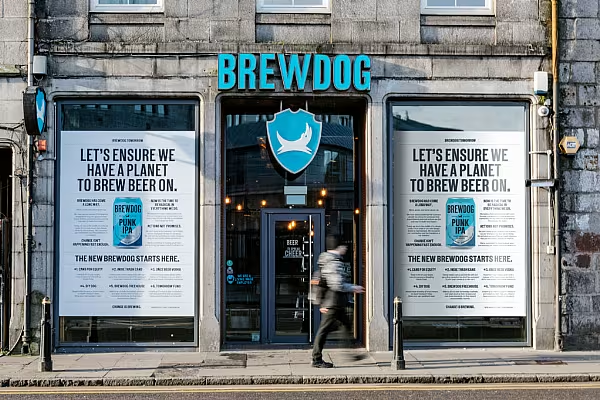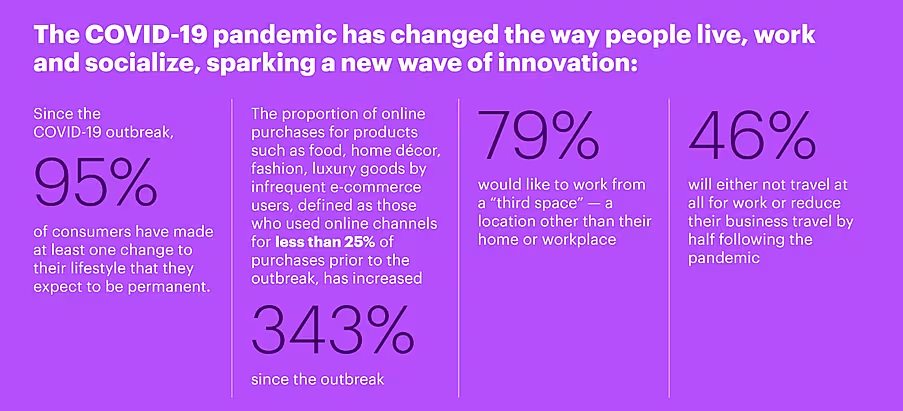The COVID-19 pandemic has changed the way people live, work and socialise, and is likely to trigger a new wave of innovation from retailers and consumer goods firms as they shift from reaction to reinvention, a new survey by Accenture has found.
According to the survey, which involved close to 10,000 respondents in 19 countries, some 95% of consumers have made 'at least one change to their lifestyle' that they expect to be permanent, while close to half (46%) said that they either 'don't intend to travel at all for work' or will cut their business travel by half after the pandemic.
Some 79% of respondents also said that they would be keen to work from a 'third space', a location other than their home or place of employment, a form of 'creative pragmatism' that could boost hospitality locations after the pandemic subsides, said Accenture.
In addition, the proportion of online purchases for products such as food, fashion, home decor and luxury goods, by so called 'infrequent e-commerce users', has risen by 343% since the pandemic, an indication that online shopping is now endemic across all areas of society.
Pandemic After-Effects
“The ripple effects of the pandemic will be felt for some time and serve as a powerful illustration of the need for consumer-facing companies to be agile, resilient, and responsive to change,” said Oliver Wright, senior managing director and head of Accenture’s global consumer goods industry group.
“Born out of disaster and necessity comes opportunity; the pandemic has sparked a new wave of innovation. As companies fundamentally rethink ways of doing business that deliver growth, many are using advanced analytical capabilities to spot, respond, and target changing consumption trends."
Wright cited British brewer Brewdog (pictured) as an example of a company that has "responded with agility and creativity" during the crisis, by shifting some of its production to making hand sanitiser, setting up Brewdog Drive-Thru outlets, increasing its sustainability footprint, and repurposing physical locations to create co-working spaces.
Retailer Initiatives
From a retail perspective, retailers have not only been quick to adopt e-commerce solutions, Accenture noted, but are also embracing technology to serve customers in new ways.
"Many adopted disruptive technologies such as augmented reality to recreate the physical store experience and help shoppers better visualise a room of furniture or an outfit, while others repurposed closed stores into local fulfilment centres with picking and packing technology," commented Jill Standish, senior managing director and head of Accenture’s global retail industry group .
"Even in a post-pandemic world, companies will need to satisfy consumers’ appetite for online shopping with fast delivery and get more intentional about the investments they will make in their people, supply chains, physical stores, and digital channels to be well-positioned to drive growth.”
© 2021 European Supermarket Magazine. Article by Stephen Wynne-Jones. For more A-Brands news, click here. Click subscribe to sign up to ESM: European Supermarket Magazine.















